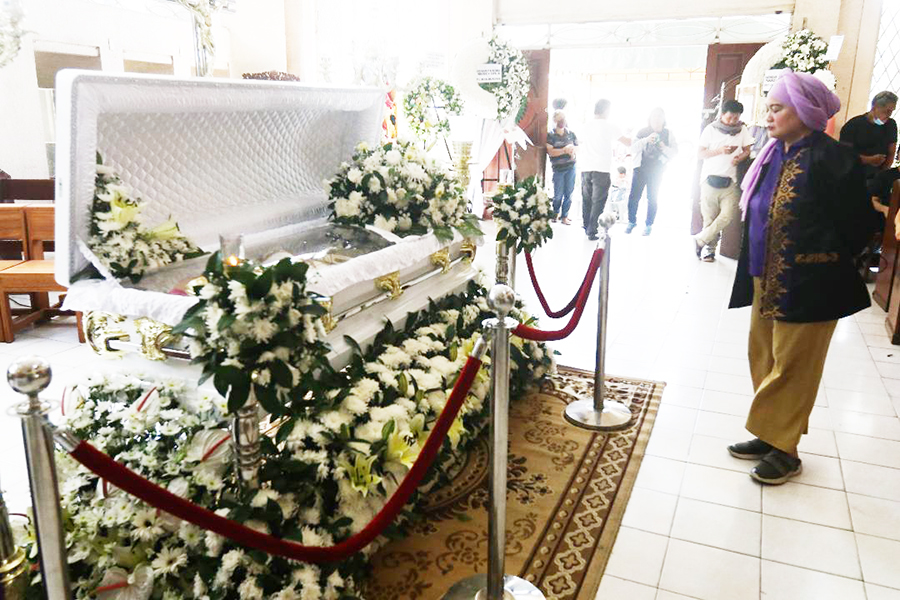DAVAO CITY – Samira Gutoc, a peace advocate, has urged the government to sustain the legacy of the late Davao Archbishop Emeritus Fernando Capalla on interfaith dialogues in Mindanao.
Gutoc also asked the government to provide necessary support for the Bishops-Ulama Conference (BUC) co-convened by Capalla in 1996.

PEACE advocate Samira Gutoc pays her last respects to the late Davao Archbishop Emeritus Fernando Capalla at the San Pedro Cathedral in Davao City on Monday. (Keith Bacongco)
The Maranao civic leader pointed out the importance of further understanding between Christians and Muslims through interfaith dialogues following the explosion during a Mass inside the Mindanao State University in Marawi City last December 3.
She said that she will carry on and spread the lessons she learned from Capalla to promote peace in the region.
Gutoc, who travelled from Marawi City to pay her last respects to the archbishop here on January 8, recalled how he steered the interfaith dialogues in conflict-affected areas through the programs of the BUC.
Capalla, who passed away on January 6 at the age of 89, co-convened the BUC that was then known as Bishops-Ulama Forum, which was instrumental in bridging the gap between Christians and Muslims through interfaith dialogues.
Years of conflict in Mindanao wedged the relationship of Christian and Muslim communities.
To bridge the gap among warring communities, religious leaders like Capalla advocated for a peaceful solution through interfaith dialogues.
Gutoc cited Capalla’s initiative as a vital component in promoting grassroots peacebuilding in the region.
She recounted how Capalla, along with other priests, imams, and pastors, calendared a variety of activities involving the Muslim-Christian youth, church workers, and other sectors in grassroots communities.
“He removed all politicians in our minds, sila. Sila lang ‘yung nakikita namin in our minds, sila lang ang celebrity wala kaming social media noon,” Gutoc added.
The BUC, she said, served as the gatekeeper for grassroots communities. “Sila po ‘yung peace process I was lecturing for the youth commission and siya as BUC before the MILF youth. They don’t believe that Christians can be a friend. Pero because na expose kami kay bishop, ako maski naka-hijab tapos babae pa, we stood na we can be friends with Christians.”
Amid the cycle of violence in the 2000s, Gutoc said that peace talks were still possible because of interfaith workers like Capalla.
While the peace negotiations between the government and Moro rebels are the formal ones, she said, the interfaith dialogue is the back-channeling, which is the gate to the people.
The interfaith dialogue is the frontline to the church community and to the masjid community, Gutoc said.
“He is a man of history. I think God gave to us because he had to solve mistrust at the highest level at that time. He left I think that foundation for us to have this formal peace process concluded.”